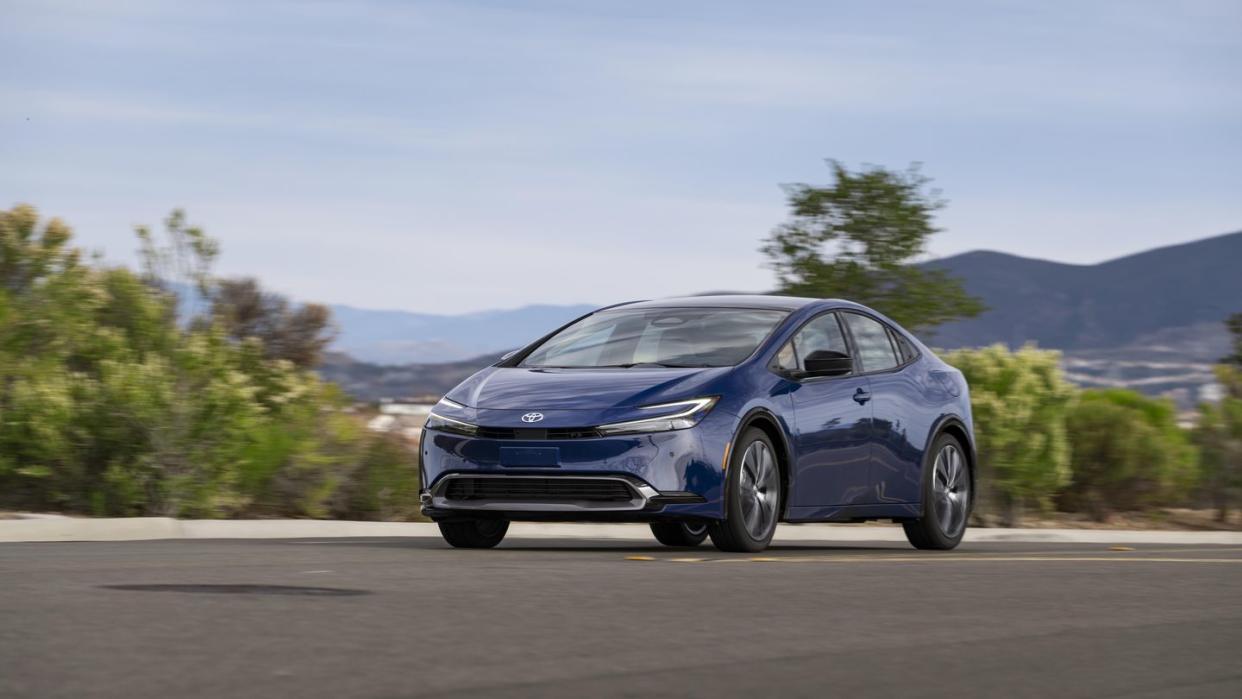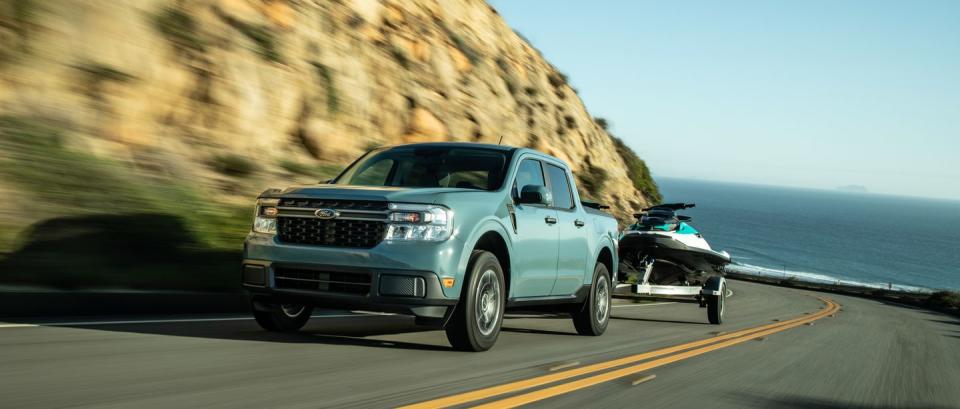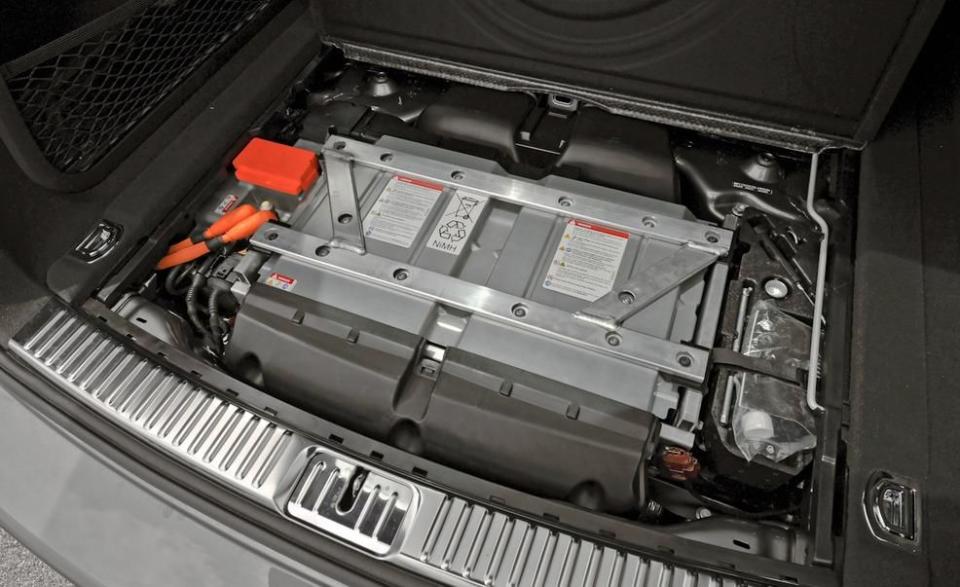Are Hybrid Cars Worth It?

As the first gas-electric hybrid car sold in the U.S. since the 1920s, the 2000 Honda Insight achieved 52 mpg combined, a record that would stand unbeaten for 16 years. But it cost $20,000 at a time when a Civic started at just under $11,000. The Insight had only two seats and three cylinders. Also, it was pitifully slow.
The first Toyota Prius, which arrived seven months later, was the same price. But even a real back seat couldn't move the first Prius beyond Larry David and other greenie devotees. It wasn't until the second-generation Prius that sales really took off, partially because its price was inline with that of other similarly sized cars.
Government Incentives and Tax Breaks for Hybrid Vehicles
Today there are 51 variants of gas-electric hybrids sold in the U.S. for the 2024 model year, according to the Environmental Protection Agency. This list contains a variety of cars, from the Ford F-150 to the parallel-hybrid Prius (now with an EPA combined rating of up to 57 mpg, despite a tougher test methodology than back when the first Honda Insight achieved 52 mpg). The EPA's list is broken out to every possible trim (such as the front-wheel drive Honda CR-V hybrid and the all-wheel drive version counting as two variants). We're not including vehicles that the EPA labels "mild hybrids," whose small electric motor largely serves the function of a start-stop system.

Plug-in hybrids, which can charge their battery packs via an external plug and drive short distances on electricity alone, are also not included on this list. Unlike their plug-in peers, run-of-the-mill hybrids are not eligible for the federal government's electric vehicle incentives. Even so, interest in hybrids continues to climb and the options available to consumers today span nearly every vehicle size, category, and price point.
Making the Decision: Is a Hybrid Car Right for You?
For compact and midsize cars and SUVs, a hybrid option is usually worth the additional upfront cost over their gas-only counterparts. Take Toyota and Honda, which offer hybrid versions of popular vehicles such as the Camry, RAV4, Accord, and CR-V. In each case, going the hybrid route adds a couple of thousand dollars to the bottom line. Still, the percentage increase in price is a comparative fraction of the estimated percentage increase in fuel efficiency these vehicles return. And in each instance, hybrids even offer more overall power and torque (and in some cases, standard equipment) than the entry-level four-cylinder engines that motivate the strictly gas-powered models.
For instance, the cheapest 2024 RAV4, a $30,025 gas-powered LE stickers for $3050 less than the gas-electric RAV4 LE hybrid. The latter, however, comes standard with all-wheel drive, a $1400 option on the gas SUV, effectively narrowing the gap to $1650. Using the EPA combined rating of 30 mpg for the RAV4 LE (both front- and all-wheel-drive models) and the all-wheel-drive RAV4 LE hybrid's 39 mpg, respectively, nets an annual fuel savings of $400 per year over 15,000 miles by going the gas-electric route. While individuals who rarely hold onto vehicles for more than a couple of years may be better off putting their money behind the gas-only Toyota compact SUV, those who hold onto their car for years will find the RAV4 hybrid makes up for its initial upfront costs over the all-wheel-drive gas model in just over four years. (This rises to nearly eight years if you're willing to sacrifice all-wheel drive and snag a front-drive gas RAV4 LE, though.)

The Ford Maverick hybrid, meanwhile, nets 37 mpg EPA combined. The $1500 premium to nab the little Ford pickup's gas-electric powertrain represents about six percent of the Maverick's base price but represents a more than 40 percent gain to the EPA-estimated combined fuel economy figure relative to the standard turbo four's most efficient option (that's 26 mpg for the entry-level front-drive model).
In the case of the $25,410 Maverick XL, the $1500 upcharge for the hybrid pays for itself after 41,000 miles, or just under three years at 15,000 miles per year.
Hybrid Car Maintenance
Maintaining a hybrid car is a lot like that of a gas one. That's because there's still a gas engine employed for propulsion. In other words, you'll still need to regularly change your hybrid car's engine oil and keep an eye on fluid levels.
Even so, the addition of an electric drive motor and the use of regenerative braking means the friction brake pads and rotors of hybrid vehicles tend to last longer than those of strictly gasoline-fed cars and trucks.
Hybrid battery packs generally have a low rate of failure because, unlike EV batteries, these packs are not deep-cycled (whereby the battery is fully charged, drained, and recharged regularly). Hybrids keep their batteries at a relatively constant state of charge and temperature. Most automakers back their hybrid batteries for a minimum of eight years or 100,000 miles, which includes the inverter and computer modules.

Though replacing a hybrid's battery pack is costly, it's not always prohibitively so. RepairPal estimates the cost of parts and labor for a new battery pack in a 2004 Prius runs between $3000 and $5000. That's a lot less than the price of buying a new car. Keep in mind, however, that the cost of replacing the battery pack of an out-of-warranty hybrid may exceed the actual value of the vehicle itself. In that case, you're likely better off purchasing a new or used hybrid vehicle.
So, is a hybrid car worth buying? Well, that's a matter of personal preference. From a cost standpoint, however, many hybrid cars do pay back their price premiums over the course of a few years.
You Might Also Like

